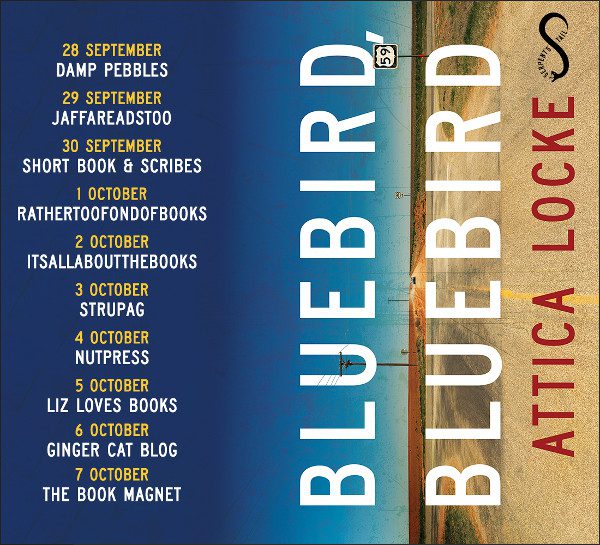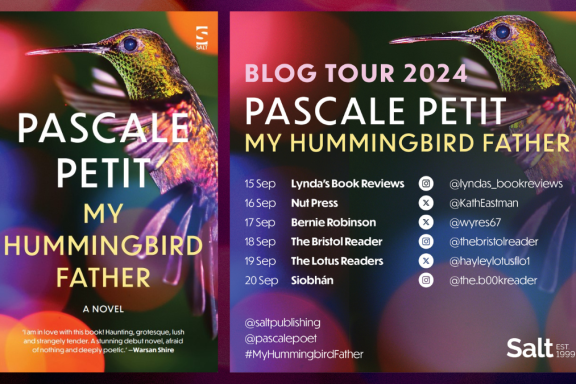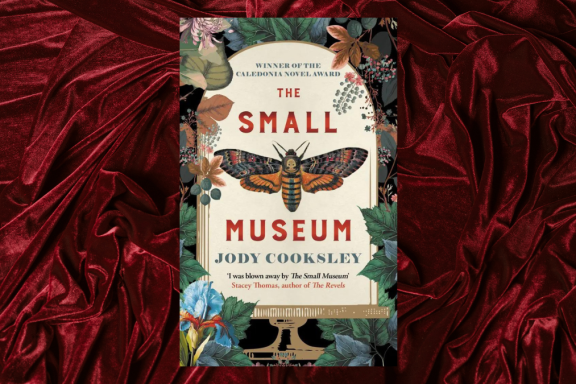 Today I’m thrilled to be able to share an extract from Attica Locke’s latest novel, Bluebird, Bluebird, a powerful thriller about the explosive intersection of love, race, and justice and the first in a timely new series about the cost of justice in the American South. This is taken from Chapter One:
Today I’m thrilled to be able to share an extract from Attica Locke’s latest novel, Bluebird, Bluebird, a powerful thriller about the explosive intersection of love, race, and justice and the first in a timely new series about the cost of justice in the American South. This is taken from Chapter One:
The tiny brass bell on the cafe’s door rang softly as Geneva let herself in.
Two of her regulars looked up from their seats at the counter: Huxley, a local retiree, and Tim, a long-haul trucker who stayed on a Houston–Chicago route week in and week out. “Sheriff’s here,” Huxley said as Geneva passed behind him. At the end of the counter, she opened the gate that led to her “main office,” the space between the kitchen and her customers. “Rolled in ’bout thirty minutes after you left,” he said, both he and Tim craning their necks to gauge her reaction.
“Must have made ninety miles an hour the whole way,” Tim said.
Geneva kept her lips pressed together, swallowing a pill of rage.
She lifted an apron from a hook by the door that led to the kitchen. It was an old one, yellow, with two faded roses for pockets.
“It was a whole day with the other one—ain’t that what you said?” Tim was halfway through a ham sandwich and talking with his mouth full. He swallowed and washed it down with a swig of Coke. “Van Horn took his sweet time then.”
“Sheriff?” Wendy said from her perch at the other end of the counter. She was sitting in front of a collection of mason jars, each filled with the very best of her garden. Plump red peppers, chopped green tomatoes threaded with cabbage and onion, whole stalks of okra soaked in vinegar. Geneva lifted each jar one by one, holding it up to the light and double-checking the seal.
“I got some other stuff outside,” Wendy said as Geneva pulled a marker from the pocket of her apron and started writing a price on the lid of each jar.
“You can leave the chow chow and the pickled okra,” Geneva said, “but I got to draw the line on all that other junk you trying to sell.” She nodded out the front window to Wendy’s car. Wendy and Geneva were the same age, though Wendy had a tendency to adjust her age from year to year depending on her audience or mood. She was a short woman, with mannish shoulders and an affected disregard for her appearance. Her hair was gray and pomaded into a tight bun. At least it had been tight last she combed it, which could have been anywhere from three to seven days ago. She was wearing the bottom half of a yellow pantsuit, a faded Houston Rockets T-shirt, and men’s brogues on her feet.
“Geneva, people like to buy old shit off the highway. Makes them feel good about how well they living now. They call it antiques.”
“I call it rust,” Geneva said. “And the answer is no.”
Wendy looked around the cafe—from Geneva to Tim and Huxley to the two other customers sitting in one of the vinyl booths— all the way to the other end of the shop, where food service ended and Isaac Snow rented fifty square feet that housed a mirror and a pea-green barber’s chair. Isaac was a slender man in his late fifties, light-skinned, with coppery freckles. He spoke as little as he had to to get by, but for a ten-spot he’d cut the hair of anyone who asked. Otherwise Geneva let him sweep up a bit to earn the three meals a day he ate out of her kitchen.
The Lord hadn’t made a soul Geneva wouldn’t feed.
Her place had been born of an idea that colored folks who couldn’t stop anywhere else in this county, well, they could stop here. Get a good meal, a little bite off a bottle of whiskey, if you could keep quiet about it; get your hair cleaned up before you made it to family up north or to the job you hoped would still be there by the time you got on the other side of Arkansas, ’cause there was no point in going if you didn’t get way the hell past Arkansas. Fortysome- odd years after the death of Jim Crow, not much had changed; Geneva’s was as preserved in time as the yellowing calendars on the cafe’s walls. She was a constant along a highway that was forever carrying people past her.
Wendy looked at the black faces in the room, trying to figure some reason for the grim mood, the tension running plain. Behind her, the jukebox flipped to another of the fifty tunes it played around the clock, this one a Charley Pride ballad with a gospel hurt on it, a plaintive plea for grace.
For a moment, no one spoke.
To Geneva, Wendy said, “What in hell’s got you so testy this morning?”
“Sheriff Van Horn is out back,” Huxley said, nodding toward the cafe’s rear wall, papered with curling wall calendars—advertising everything from malt liquor to a local funeral home to Jimmie Clark’s failed bid for county commissioner—going back fifteen years. Behind the rear wall was the kitchen, where Dennis was working on a pot of oxtails. Geneva could smell bay leaves soaking in beef fat and garlic, onion and liquid smoke. Beyond the kitchen’s screen door lay a wide plot of land, red dirt dotted with buttercup weeds and crabgrass, rolling a hundred yards or so to the banks of a rust-colored bayou that was Shelby County’s western border. “Brought three deputies, too.”
“What’s going on?” Geneva sighed. “They pulled a body out the bayou this morning.”
Wendy looked dumbfounded. “Another one?”
“A white one.”
“Aw, shit.”
Huxley nodded, pushing his coffee away. “Y’all remember when that white girl got killed down to Corrigan, they hauled in nearly every black man within thirty miles. In and out of every church and juke joint, every black-owned business, hunting for the killer or anybody who fit the bill they had in mind.”
Geneva felt something dislodge in her breast, felt the fear she’d been trying to staunch give way, rising till it liked to choke her from the inside out.
“And ain’t nobody done a damn thing about that black man got killed up the road just last week,” Huxley said.
“They ain’t thinking about that man,” Tim said, tossing a grease-stained napkin on his plate. “Not when a white girl come up dead.”
“Mark my words,” Huxley said, looking gravely at each and every black face in the cafe. “Somebody is going down for this.”
Bluebird, Bluebird by Attica Locke is published in the UK by Serpent’s Tail and is now available as an ebook and in hardback. You can find it at Amazon UK, Foyles, Hive (supporting your local independent bookshop), Waterstones and Wordery.
Attica Locke is the author of Pleasantville, Black Water Rising and The Cutting Season. Attica is also a screenwriter and has written for Paramount, Warner Bros, Twentieth Century Fox, HBO, Dreamworks and was a writer and producer on the drama Empire. To find out more about Attica and her books, visit her Author Website, or follow her on Twitter.
You can find more posts on the Bluebird, Bluebird blog tour at the following blogs:




Leave a comment